Jewish life between the early modern period and the present time is researched in all its diversity at the Institute for the History of the German Jews in Hamburg (IGdJ). Ever since its foundation in 1966, not only has the field of Jewish Studies developed and become differentiated in terms of methodology and disciplinarity, but the profile of the IGdJ has also expanded. While the historical focus on German-speaking Jewry remains, Jewish life in the present, current questions of remembrance and commemoration, as well as scholarly work with new media and digital technologies are increasingly coming into focus.
With the summer semester of 2023, the IGdJ will launch the Gabriele Meyer Fellowship Programme to promote cutting-edge scholarship in the field of Jewish Studies and to further sharpen the Institute’s research profile through international exchange. The physician and psychoanalyst Dr. Gabriele Meyer (29 June 1938–30 March 2018), born and raised in Tel Aviv, with subsequent biographical stations in Malmö and Munich, lived and worked in Hamburg. Named in honour of her as the donor, the fellowship of up to four months will be awarded for the period between April and July 2023. The programme welcomes scholars working on the themes and approaches anchored in the Institute’s research profile. They are encouraged to use the wide-ranging collections of the Institute’s library as well as the holdings of various archives in the region. Fellows are expected to participate in all of the IGdJ’s activities, including presentations of their work in the research colloquium as well as a public lecture. Through the organisation of a one-day workshop the fellows’ project shall be discussed in a broader context of peers, which, in turn, provides valuable networking opportunities in the wider (north-)German scholarly community.
Call for Applications – Fellowships at the IGdJ in Hamburg 2027
Researching the diversity of Jewish life from the early modern period to the present day is the mission of the Institute for the History of the German Jews (IGdJ) in Hamburg. While the IGdJ’s historical focus lies on the history and culture of German-speaking Jewry, questions concerning Jewish life in the present, practices of remembrance and commemoration, as well as modern media and digital technologies open up new research perspectives and spaces for discussion.
In order to strengthen scholarly debate and bring new research perspectives to the IGdJ, the institute has been awarding annual research fellowships since 2022. These fellowships are intended to support innovative academic projects in the field of Jewish Studies and to deepen both national and international exchange.
For 2027, a total of three fellowships can be advertised thanks to new cooperations, thereby expanding the IGdJ’s research funding program.
The application deadline is 16 March 2026. Further information on application procedures and fellowship conditions can be found here:
In cooperation with the Carlebach Working Group of the UHH.
In addition to promoting research and teaching on Jewish history, culture and religion in the Hanseatic City of Hamburg, academic exchange between Germany and Israel is a central interest of the Joseph-Carlebach Working Group. The establishment of a fellowship, which enables young academics to spend a research period in Hamburg, is intended to strengthen academic exchange through this additional funding format.
In memory of Miriam Gillis-Carlebach (1922-2020), the Joseph-Carlebach Working Group, an association of researchers working at the University of Hamburg and the Institute for the History of German Jews, has been awarding the Miriam Gillis-Carlebach Fellowship since 2023 to promote innovative academic projects in the field of Jewish studies. The fellowship is designed to deepen academic exchange between Germany and Israel and aimes at young academics (doctoral students and postdocs up to 7 years after their dissertation) who wish to conduct research in the different fields of interests promoted by members of the Joseph-Carlebach Working Group. The fellowship also promotes the extensive specialized library and the holdings in the various archives in the city and region. It enables a research stay of up to three months in Hamburg.
Currently, there is no active call for application for the Miriam Gilis-Carlebach-Fellowship.
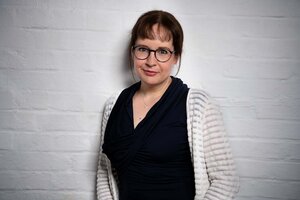
Dr. Gabriele Meyer-Fellow
Carolin Kosuch currently holds the Chair of Modern History at Georg August University in Göttingen. She studied medieval and modern history, religious studies, and Eastern and Southeastern European history at the Universities of Leipzig and Krakow. From 2010 to 2013, she was a doctoral fellow of the German National Academic Foundation at the Simon Dubnow Institute for Jewish History and Culture at the University of Leipzig. She received her doctorate there in 2014. In 2013/14, she was a research assistant in the academy project “European Traditions – Encyclopedia of Jewish Cultures” at the Saxon Academy of Sciences in Leipzig. From 2014 to 2018, she worked as a research assistant in the Department of 19th and 20th Century History at the German Historical Institute in Rome and as a lecturer at the Institute of Philosophy at the Technical University of Braunschweig. From 2019 to 2022, she was a research assistant at the Chair of Modern History at the University of Göttingen (R. Habermas), funded by the DFG. She was awarded her habilitation (venia legendi in modern and contemporary history) by the Faculty of Philosophy at the University of Göttingen in July 2023. In the summer semester of 2023, she was a fellow at the KFG “Religion and Urbanity: Reciprocal Formations” at the University of Erfurt, Max Weber Kolleg. In addition to modern Jewish history, her research focuses on the cultural and intellectual history of the 19th and 20th centuries and the history of secularism, atheism, and religious nonconformity. Her publications include Missratene Söhne: Anarchismus und Sprachkritik im Fin de Siècle (Schriften des Simon-Dubnow-Instituts Vol. 23, 2015) and Die Abschaffung des Todes: Säkularistische Ewigkeiten vom 18. bis ins 21. Jahrhundert (Campus Historische Studien Vol. 84, 2024).
Project: Jewish Atheism: A Concept of Belonging and Becoming
During my time at the IGdJ, I will be working on a new research project that will examine the atheistic positions of people of Jewish origin in the 19th and 20th centuries. At the intersection of intellectual and conceptual history research, and taking social and cultural factors into account, I want to examine the diversity of atheistic thought—an ideological phenomenon that has thus far been viewed primarily from a Christian-secular perspective.
For the conceptual phase, in which the project currently finds itself, I will draw on the holdings of the IGdJ library, conduct archival research, and present my approach for discussion within the institute.
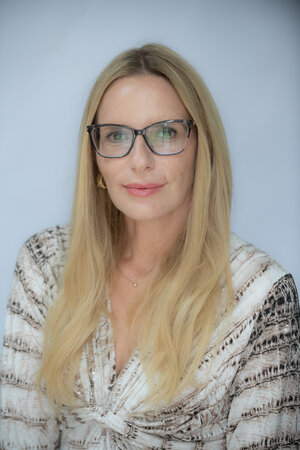
Miriam Gillis-Carlebach-Fellow
Rachel Verliebter is a doctoral fellow at the Maayan Center for Ethics, Philosophy and Sustainability at Bar-Ilan University, completing her PhD in Jewish Thought. Her dissertation is dedicated to investigating the symbolism and phenomenology of water in Jewish mysticism. Beyond her doctoral work, Rachel's interdisciplinary research explores the Divine Feminine in Jewish art and the kabbalistic influences on modern Jewish identity discourse, with a particular focus on the Parisian school of Jewish thought (L'École de pensée juive de Paris).
Publications:
- Lilith: Dark Mother or First Eve – A Symbolic Reading of a 19th Century Jewish Birthing Amulet from Galicia
Lilith: Mère Obscure ou Première Eve - Interprétation Symbolique d’une Amulette Juive Galicienne du XIXe siècle pour la Protection de la Parturiente et du Nouveau-né (French) Life as a Dialogue -The Jubilee Book in Honor of Ephraim Meir, edited by Hanoch Ben-Pazi, Tel Aviv : Idra Publishing, 2025, pp. 63-85. - The Divine Breast from the Bible to our Times: A History of Spiritual Nursing
Le sein divin de la Bible à nos jours: Une histoire de l’allaitement spirituel (French), in Et le sexuel aujourd’hui? Shibboleth Actualité de Freud edited by Michel Gad Wolkowicz, Éditions In Press, Paris 2025 [forthcoming].
Project: Debates on Jewish Identity among German Jews during the Initial Stages of the Nazi Period, 1933-1938
My research focuses on revisiting debates about Jewish identity and memory among German Jews during the early Nazi period (1933–1938), as reflected in the Jewish press, including the Jüdische Rundschau, CV-Zeitung, and Israelitisches Familienblatt. The project examines how Jewish intellectuals and artists, forced by Nazi persecution to confront their Jewishness, debated questions of Jewish identity, cultural authenticity, and the relevance of liberal traditions, assimilation, and Zionism. These debates emphasized a return to Jewish authenticity and collective memory as a response to oppression.
The research analyzes hundreds of essays from the Jewish press, which engaged a broad spectrum of German Jewry, not just intellectuals. The critical discourse analysis of the ideas identified in these essays concentrates exclusively on the identity debate within the Jewish press, which covers the large majority of German Jewry, as many Jewish Germans returned to reading “Jewish” newspapers after 1933: the debate was thus not merely a learned discussion among intellectuals but reached all social spheres of the educated Jewish public.
The subject of Jewish identity and memory between 1933 and 1938 will be examined through a wide range of genres and contexts addressed by the relevant journalistic essays: literature and art, religion and theology, philosophy and Jewish history.
Beyond the mere historical analysis of the Jewish identity debates in Germany after 1933, the project will provide a forum for discussing the potential relevance or irrelevance for current debates about identity and memory, that is, the politics of remembrance, Jewish cultural self-definition and (des-) integration, in the light of the rising threat of antisemitism in our days.

Dr. Gabriele Meyer-Fellow
Andrea Sinn is Associate Professor of History at Elon University/NC, USA, where she heads the interdisciplinary Jewish Studies program as well as the International and Global Studies Program. Her research interests focus on modern German and Jewish history, with an emphasis on the Third Reich and the immediate post-war period of the Holocaust, as well as on women and religion on the German home front during World War I. Among her publications are German Jews and Migration to the United States, 1933–1945, edited with Andreas Heusler (Landham, MD: Lexington Books, 2022); Die Erfahrung des Exils: Vertreibung, Emigration und Neuanfang – Ein Münchner Lesebuch, edited with Andreas Heusler (Berlin/Boston: Walter de Gruyter, 2015); Jüdische Politik und Presse in der frühen Bundesrepublik (Göttingen: Vandenhoeck & Ruprecht, 2014); and “Und ich lebe wieder an der Isar”: Exil und Rückkehr des Münchner Juden Hans Lamm (Berlin/Boston: De Gruyter Oldenbourg, 2008).
Funded by the Hamburg Scholarship of the Alfred Toepfer Foundation F.V.S. and the Dr. Gabriele Meyer-Fellowship
Project: Joining the German Home Front: Women, Religion, and World War I
During my time at the IGdJ, I will review and analyze archival materials in the city of Hamburg needed to advance my most recent scholarly work, which explores the range of efforts and suffering of German women of Jewish, Protestant, and Catholic faiths during the First World War. My research and book project is inspired by the apparent absence of female and minority perspectives in studies addressing the Great War in the German context. A particular focus of my research is on the Jewish Community Archive, the archives of Hamburg shipping companies, and the personal collection of Alfred Toepfer.

Esther Rachow is a PhD student at the Hebrew University of Jerusalem and a research associate in the Horizon Europe research project MEMORISE: Virtualization and Multimodal Exploration of Heritage on Nazi Persecution. In MEMORISE she is responsible for the evaluation and development of digital pedagogical methods and the definition of pedagogical and ethical guidelines for dealing with the history of Nazi persecution and new technologies. Esther Rachow holds a degree in Public History from the Free University of Berlin and has many years of experience in the development and implementation of educational programs on the Holocaust and anti-Semitism, most recently as co-director of the German-language section of the International School for Holocaust Studies at Yad Vashem, Jerusalem.
In her research, she focuses on the intersection of history, digital humanities and social sciences, with a particular interest in the impact of digital teaching and learning methods on the history of the Holocaust and Nazi persecution on historical knowledge in Western European societies. In her doctoral thesis, she is researching new paradigms of Holocaust education in the digital age, with a focus on the digital processing and visualization of Jewish testimonies and their use in educational work at historical sites.
Publications:
Vang Østergaard, C., Rachow, E., Gebauer, J., Jänicke, S. (2024). Developing the Bernburg 3D Model for the Digital Transformation of Euthanasia Education. Alliance of Digital Humanities Organizations (ADHO). In: Digital Humanities 2024: Book of Abstracts. 10.5281/zenodo.13830364.
Meffert, N., Østergaard, C. V., Jänicke, S., Khulusi, R., Rachow, E., & Andersen, N. S. (2024). A Survey on Storytelling Techniques for Heritage on Nazi Persecution. In VISIGRAPP (1): GRAPP, HUCAPP, IVAPP (pp. 603- 615).
Her research is funded by the European Forum of the Hebrew University in Jerusalem.
The fellowship is generously supported by ZEIT STIFTUNG BUCERIUS.
Project:
Digital remembrance culture and history education on the Holocaust and Nazi persecution in Hamburg
During my time at the IGdJ in Hamburg, I will focus on the impact of the digital turn on Hamburg's culture of remembrance of the Holocaust and Nazi persecution. In particular with the role of digital mediation concepts at central historical sites of the Nazi era in and around Hamburg. I am particularly interested in two levels of this phenomenon, which represent central influencing factors for the current culture of remembrance and knowledge transfer about the Nazi era: 1. the digital dimension of spatialization and visualization of accessible and non-accessible historical sites and 2. the importance of experiential knowledge from first-person documents of eyewitnesses and to what extent the contextualization of these historical pedagogical dimensions in Hamburg's local Jewish and Nazi history is an important factor for the learning experience. I am particularly pleased to have the opportunity to conduct this study in Hamburg, which is relevant to my research.

Miriam Gillis-Carlebach-Fellow
Christoph Hopp is a doctoral candidate at the Universities of Potsdam and Haifa. His research focuses on the production and transformation of knowledge between Europe, the Middle East and Central Asia. In his dissertation project, he explores the intersections of Jewish history (Haskalah, the science of Judaism and Zionism) and the history of linguistics. The aim of the work is to reconstruct the processes that led to the conceptualization of Hebrew as a Semitic and Middle Eastern language.
Publications:
- “Semitic Linguistics between Cairo and Jerusalem: Israel Ben-Ze’ev’s History of the Semitic Languages (1929),” Jewish Quarterly Review (forthcoming).
- Eliezer Schweid, A History of Modern Jewish Religious Philosophy, Vol. IV: The Crisis of Humanism (II): The End of the Jewish Center in Germany, transl. Leonard Levin, annotated by Ch. Hopp and L. Levin (Leiden: Brill, 2023).
- Eliezer Schweid, A History of Modern Jewish Religious Philosophy, Vol. III: The Crisis of Humanism: A Historical Crossroads, transl. Leonard Levin, annotated by L. Levin, Ch. Hopp, and Yuval Lieblich (Leiden: Brill, 2019).
Together with Thomas Loy (Oriental Institute of the Czech Academy of Sciences, Prague), Hopp is currently working on a volume that will bring together an important part of the Hebrew-language research on the Jewish history of Central Asia in the 19th and 20th centuries. He is translating the articles selected for this volume into English.
During his doctorate, he was supported by the Ernst Ludwig Ehrlich Studienwerk. He received the Conway Prize (Faculty of Humanities, University of Haifa) for his research in 2024. He is a Fellow of the Bucerius Institute for Research of Contemporary Germany History and Society (University of Haifa).
Project:
Modern Origins of Hebrew: Linguistics and Jewish History in the 19th and 20th Century
During my stay at the IGdJ, I will be working on the part of my dissertation that deals with the role of Hebrew in German-speaking Semitic studies. The focus will be on the discourse on the historical genesis of the Hebrew language. This converged in the 1920s with the discourse on its present and future. Both revolved around questions of origin and belonging: What language did Abraham speak and wasn't Canaan a multi-ethnic crossroads between Africa and Asia? Has the Hebrew language become “desemitized” in the course of its long history of migration? Has it become European? The last two questions in particular have had a veritable career and are sometimes still debated today. My research is intended to contribute to an understanding of their origins, which I seek at the intersection of the history of science and Jewish history.
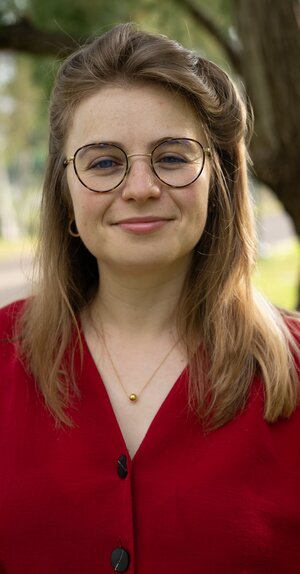
Miriam Gillis-Carlebach-Fellow
Margarita Lerman is a PhD Candidate at the Hebrew University of Jerusalem and an Affiliated Researcher at the Leibniz Institute for Jewish History and Culture – Simon Dubnow in Leipzig. Her PhD project elucidates the modi operandi of Jewish networks active outside the legal confines of the law, mainly in the realm of fraud, smuggling, illegal (female) migration, and counterfeiting, that operated throughout the 19th century in Central and Eastern Europe as well as in their respective countries of immigration. She also examines cooperatives established to combat these networks, thereby highlighting the interplay between delinquent actors, the political and legal systems in which they operated, and Jewish communities.
Publications:
- Patria o Muerte im Nahen Osten – Der Junikrieg aus kubanischer Perspektive, in: Lennard Schmidt et al (eds.), Antisemitismus zwischen Kontinuität und Adaptivität. Interdisziplinäre Perspektiven auf Geschichte, Aktualität und Prävention, Göttingen 2022, 227–242.
- “An Ideal Picture of the Jew?” Jewish Responses to Vice in 1910s New York City, in: Mimeo. Blog der Doktorandinnen und Doktoranden am Dubnow-Institut [Weblog], 26 July 2022.
- Kubas schwieriges Verhältnis zu Israel. Antizionismus als außenpolitische Agenda?, in: Geschichte der Gegenwart, 18 October 2020.
She has received funding for her research from the Heinrich Böll Foundation, the Avraham Harman Research Institute of Contemporary Jewry at the Hebrew University of Jerusalem and the Jack, Joseph and Morton Mandel School for Advanced Study in the Humanities, among others.
Project:
In Loopholes and Gray Areas. A Cross-Border History of Criminal Jewish Networks, 1820s–1914
During my stay at the IGdJ, I will focus on Hamburg as a transit center in transatlantic migration journeys of Jewish emigrants in the last quarter of the 19th century. Against this backdrop, the city played a central role for Jews involved in criminal endeavors, too. However, as a place of encounter between lawmakers, police officers, and Jewish men and women (passing through), Hamburg was not only of central importance for those who tried to evade state control. Regular contact with Hamburg was also crucial for authorities all over Europe that turned to local officials when in need of assistance in searching for fugitives or in confirming witness statements. I am looking forward to and am thankful for the opportunity to trace this part of Hamburg’s Jewish history on site.
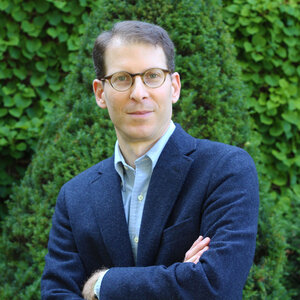
Dr. Gabriele Meyer-Fellow
Jay Geller holds the Samuel Rosenthal Professorship in Jewish Studies and is Professor of History at Case Western Reserve University, where he heads the interdisciplinary Jewish Studies program. From 2015 to 2020, he was book review editor for AJS Review, the journal of the Association for Jewish Studies, the American Jewish Studies Association. His research interests include German-Jewish political, social and cultural history in the late 19th and 20th centuries. He is the author of Die Scholems. Geschichte einer deutsch-jüdischen Familie (Suhrkamp Verlag, 2020) and Jews in Post Holocaust Germany (Cambridge University Press, 2005) as well as co-editor of the anthologies Three-Way Street: Jews, Germans and the Transnational (University of Michigan Press, 2016) and Rebuilding Jewish Life in Germany (Rutgers University Press, 2020). He is a former scholarship holder of the DAAD, the Friedrich Ebert Foundation and the Gerda Henkel Foundation.
Funded by the Hamburg Scholarship of the Alfred Toepfer Foundation F.V.S. and the Dr. Gabriele Meyer-Fellowship
Project:
Jewish sacral buildings in the Weimar Republic. Architectural style and Jewish identity in the age of modernism
At the IGdJ, I will examine the connections between Jewish identity and the architecture of Jewish buildings in the Weimar Republic, including cemeteries, communal institutions, and especially synagogues. I seek to understand why, after almost a century of architectural historicism, which was inextricably linked to German-Jewish collective identity, community leaders and Jewish architects abruptly turned to modernism. A particular focus of my research is the Israelite Temple Association of Hamburg.

Yaniv Feller is an assistant professor in the Religion Department and the Bud Shorstein Center for Jewish Studies at the University of Florida. He is a scholar of modern Jewish thought and material culture specializing in German-speaking countries. Feller’s first book, The Jewish Imperial Imagination: Leo Baeck and German-Jewish Thought (Cambridge UP, 2023) won the Jordan Schnitzer First Book Publication Award of the Association for Jewish Studies. In it, Yaniv offers a new analytical framework for understanding German-Jewish thought in light of German ideas about empire, thereby contributing to discussions in Jewish philosophy, German-Jewish history, and empire studies. Drawing on archival resources as well as Baeck’s published oeuvre, it is the first book to read Baeck’s religious thought as political, raising in the process new questions about the nature of Jewish missionizing and the German-Jewish imagination of the East as a space for colonization. Yaniv’s articles on Jewish philosophy, including modern gnosis, Jewish-Christian dialogue, and resentment after the Holocaust, have been published in journals including Journal of Religion, New German Critique, and Jewish Studies Quarterly.
Jew in a Box: The Past and Future of Jewish Museums is Feller’s current monograph project. The book offers a comparative study of the representation of Jews and Judaism in museums. The project utilizes an interdisciplinary framework—including museum studies, Jewish philosophy, and material religion—to show the ways Jewishness is polemically constructed vis-à-vis Christianity. Spanning across three continents and covering institutions ranging from national institutions to small community enterprises, Jew in a Box highlights neglected aspects in the museal experience, from the importance of the work done in the storage and conservation unit to placing the museum’s gift shop as an object of inquiry. It shows how Jews as a minority group are represented in museums, and the role museums play in mediating religion, culture, identity, and history.
Yaniv’s recent publications related to this project include “Whose Museum Is It? Jewish Museums and Indigenous Theory,” which appeared in Comparative Studies in Society and History, and ““Oy Tannenbaum, Oy Tannenbaum!: The Role of a Christmas Tree in a Jewish Museum,” which appeared in The Public Work of Christmas.
The fellowship is generously supported by ZEIT STIFTUNG BUCERIUS.
Project:
Jew in a Box: The Past and Future of Jewish Museums
At the IGdJ, I will work primarily on a chapter dedicated to the space of the museum, exploring how the placement of museums in synagogues throughout Germany calls for a rethinking of the idea of museums as civilizing agents that endow space with sacred meaning.
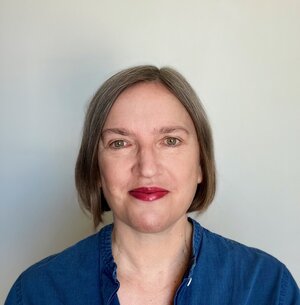
Dr. Gabriele Meyer-Fellow
Anna Holian is Associate Professor of Modern European History at Arizona State University. Her research interests include migration and displacement; architecture, urban planning, and city life; and film studies. She is the author of Between National Socialism and Soviet Communism: Displaced Persons in Postwar Germany (University of Michigan Press, 2011). Her research has been supported by the National Endowment for the Humanities, the German Academic Exchange Service (DAAD), the German Historical Institute Washington D.C., the Institute for Contemporary History (Munich), and the United States Holocaust Memorial Museum. She was also for many years a member of the Holocaust Geographies Collaborative.
Project:
Setting Up Shop in the House of the Hangman: Jewish Economic Life in Postwar Germany.
During my time at the IGdJ, I will be completing my book about Jewish economic life in postwar West Germany. Placing modest entrepreneurs at the center of postwar German Jewish history, the book examines how “native” German and “newcomer” Eastern European Jews (re-)established businesses and charts how these businesses fared over the first three postwar decades. The relationship between Jewish survivors and German society is also central to the project. I look at how both Jews and Germans thought about Jewish involvement in the German economy and how Jewish business owners related to their German employees and customers. I show that while most newcomers, and many natives, did not initially plan to stay in Germany, their involvement in the economy was the central means by which they (re-)established roots in the country. I thus challenge the prevailing view that Jews in postwar Germany are best understood as “sojourners,” temporary residents prepared to leave at the earliest opportunity.
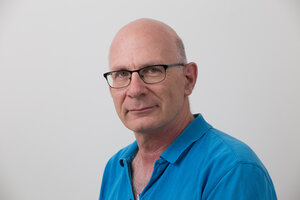
Dr. Gabriele Meyer-Fellow
Amos Goldberg is an Associate Professor, the Jonah M. Machover Chair in Holocaust Studies at the Department of Jewish History and Contemporary Jewry and the Head of the Avraham Harman Research Institute of Contemporary Jewry at The Hebrew University of Jerusalem.
Goldberg’s work is interdisciplinary in nature, combining history, cultural studies and psychoanalysis. Part of his work focuses on the cultural history of the Jews in the Holocaust and part of it on Holocaust memory and historiography. Much of his work is marked by “multi-directionalism”.
His publications appeared in Hebrew, English, Arabic, French, German, Japanese and Italian. Among them are:
- Editor and a co-author of three of the four volumes in the series Years Wherein we have Seen Evil: Selected Aspects in the History of Religious Jewry during the Holocaust (Yad Vashem 2003–2008)
- Trauma in First Person: Diary Writing During the Holocaust (Hebrew 2012; English Indiana UP 2017). The book won the Eggit prize and was among Choice's ten most outstanding books in the category of “History Geography and Area Studies” for 2018
- He edited several books among them his co-edited volume with Haim Hazan Marking Evil: Holocaust Memory in the Global Age (Berghahn 2015), and his co-edited volume with Bashir Bashir The Holocaust and the Nakba: A New Grammar of Trauma and History (Columbia University Press 2018; in Japanese 2023, forthcoming in Italian).
- His forthcoming book Five Critical Readings in Holocaust Memory is due for publication in Hebrew this year. And he is now finishing writing a book on the Cultural History of the Jews in Warsaw during the Holocaust.
Goldberg is a fellow at the Van Leer Jerusalem Institute and was the 2018–2019 J.B. and Maurice C. Shapiro Senior Scholar-in-Residence Fellow in the Mandel Center at the United States Holocaust Memorial Museum in Washington DC.
He is among the initiators and the drafters of the Jerusalem Declaration on Antisemitism (JDA)
Project:
Aspects of Warsaw Jews’ Cultural History under Nazi Rule
During my tenure at the IGdJ I am planning to finish writing my book on the cultural history of the Warsaw Ghetto – a research project I had been working on for several years. According to Moshe Rosman (who reflected on this in the context of Jewish history), cultural history is not interested in the products of creative forces within a particular group, but in the meanings these forces and products convey. Or in other words, cultural history is not concerned with describing the cultural and religious institution or their products, but rather in the mechanism of meaning-making within a certain society, or in what Peter Burke sees as the common basis of all branches of cultural history: ‘dealing with the symbolic and its interpretation.’ In my research I apply these approaches to the study of the Jews of Warsaw under Nazi rule. The book dedicates a chapter to each of the following topics: the culture of rumors in the ghetto; the Warsaw ghetto street jester and his social critique; coffeehouses in the ghetto; language wars and the transformation of language; clothing and fashion.
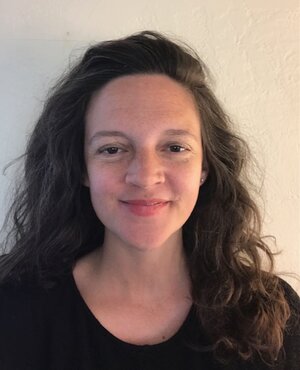
Dr. Gabriele Meyer-Fellow
Abby Anderton is an Associate Professor of Music at Baruch College and the Graduate Center, City University of New York. Her work centers on performance and Holocaust testimony, female composers, and post-catastrophic music making. Anderton’s publications have appeared in the German Studies Review, Journal of Musicological Research, Twentieth-Century Music, and Music and Politics. Her research has received support from the Fulbright Commission, the Holocaust Educational Foundation, the Humboldt Foundation, the Eugene Lang Foundation, the American Musicological Society, and the German Academic Exchange Service (DAAD).
Project:
Survivor Musicians in Postwar Germany
While at the IGdJ I plan on working on my current book project, Audible Testimonies: Holocaust Survival in Music and Media, which explores the early postwar sounds of survivor musicians in Germany, demonstrating that their compositions, recordings, and performances are forms of Holocaust witnessing. Many of the first Holocaust testimonies involved music. Yet decades after producing scholarship on this period, much of this music remains inaudible, fragmentary, or unpublished. Through materials collected in German and American archives, this project reveals how these musicians empowered their communities well before the witness testimonies at the 1961 Eichmann Trial compelled the world to listen. Whether considering the Terezín memory pieces of Erich Adler, the performances of the Ex-Concentration Camp Orchestra with Leonard Bernstein, or the liberation concerts of cellist Anita Lasker-Wallfisch in Bergen-Belsen, musical testimonies gave survivor musicians a public platform in postwar Germany. I especially look forward to using the Institute’s archival and library collections to integrate more Hamburg-based musicians in my study.
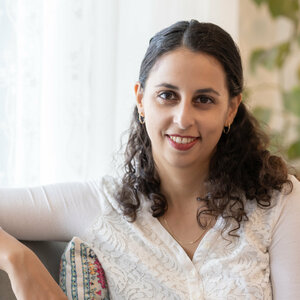
Miriam Gillis-Carlebach-Fellow
Dr. Naama Jager-Fluss is a historian and research associate at the Samuel Braun Chair for the History of the Jews in Germany at Bar-Ilan University. Her work focuses on the beginning of Liberal Judaism in Germany in the 19th century and the emergence of Jewish movements in modern times. Initial research results have appeared in the journals Tabur, Chidushim, and Reshit.
So, among others, the articles:
- "My wish is that women could also visit the synagogue: on the inclusion of women in worship at the Hamburger Temple (Hebrew),“ Reshit (2023), p. 139–165.
- "Religious Enlightenment and Pietism within the Synagogue: Gotthold Salomon's Sermons in the Hamburg Temple (Hebrew),“ Chidushim 24 (2022), p. 9–47.
- "And the People Has Been Divided into Two Groups: The Religious Reform at the Beginning of the 19th Century (Hebrew),“ Tabur 9 (2019), p. 33–57.
She received funding for her research from the DAAD and the Leo Baeck Institute.
Project:
From Haskalah to Religious Reform: Eduard Kley (1789–1867) as a Transitional Figure
While at the IGdJ, I will be working on my current project on the first generation of religious reformers and the question of the relationship between the Haskalah and religious reform in the German-speaking context at the beginning of the 19th century. By examining the writings of 'Changing Figures' such as Gotthold Salomon, Eduard Kley, Isaac Noah Mannheimer, David Caro, and Bernhard Beer, my research contributes to a more nuanced understanding of the history of the Jewish Reform movement, especially in its early pioneering phases. During my time at the IGdJ, I plan to work on both my book on the Hamburg preacher Gotthold Salomon. There is no more fitting place than Hamburg to focus intensively on research about Salomon and the beginnings of the Reform movement in Judaism, as Hamburg was the first and most significant focus of Reform Judaism in the first half of the 19th century.


